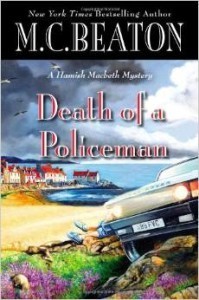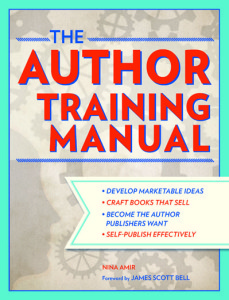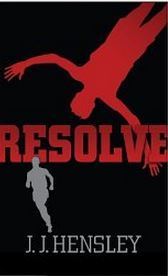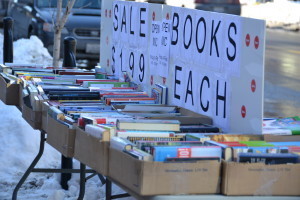Riley Adams's Blog, page 135
May 13, 2014
Series—Keeping Things Fresh Without Alarming Readers
By Elizabeth S. Craig, @elizabethscraig
I’m an avid reader of mystery writer M.C. Beaton’s (pen name for Marion Chesney’s) books and have been for many years. I keep track of her releases and order them when they become available. She writes a few series under different names, but the Hamish MacBeth series is my favorite and has had a huge influence on me. Beaton’s books are the reason I’m writing cozy mysteries.
One of the reasons I track her books, apart from my own enjoyment, is because she’s successfully kept this particular series going for 30 books. (My series with the most books is only at 6 books…working on the 7th now). And Beaton has not only retained her readers, she’s increased her readership. She’s recently become active on social media (years ago I couldn’t even find a photo or contact info for her online…when I was already all over the place online) and that seems to have also helped gain her readers.
I remembered the other day that she had a fairly recent Hamish release and I hopped on Amazon to order the book. Usually her books are highly rated by readers who are just as avid as I am. This time I was surprised to see some bad reviews and scrolled down out of curiosity…interested to see what readers were saying. This isn’t my usual approach, since readers are terrible about giving spoilers on Amazon, but I wanted to see what they were saying this time.
Readers who gave negative reviews mentioned an increase in the number of bodies, a darker feel to the (previously cozy) series…a couple even saying it read like noir, complaints about out-of-character behavior by the beloved sleuth, and even readers claiming they thought the book had been ghost-written (!).
Of course, this made me want to read the book even more, to see if I’d get the same impression, myself.
So…this is a very long-running, very successful series. Maybe Beaton wanted to make some changes to keep the stories fresh or to keep her interest in the series from waning. Some readers may have been more responsive to her changes than others. Maybe the changes happened too swiftly for the series? This all made me ask:
What do you do when you’re wanting to keep a long-running series fresh?
It’s probably more difficult to…
Change the protagonist’s personality. Readers were saying that Hamish’s personality seemed different—that his response to stressful situations was inappropriate. Personality changes can be pulled off, but there needs to be good reasons for the changes that readers can believe.
Change the tone of the books. Tricky. Readers were saying that this book had a “noir” feel to it…and it’s a cozy. If the whole rest of the series is light and you introduce a dark book or vice versa—there may be some pushback.
Other ideas that might be easier to try:
Introducing new and possibly recurring characters into a series. Obviously, these would present different opportunities for interaction with the protagonist—conflict, friendship, love interest, antagonist.
Adding an ongoing conflict/trial/challenge for the protagonist to address. This could come in the form of another character or a health, job, or emotional challenge.
Adding a continuing storyline. If we haven’t had a continuing storyline from book to book, we could consider adding one to offer the opportunity for character growth.
Showing a different side to the main character (but one that fits in with his or her overall personality).
Taking the characters on a road trip (be careful here).
Providing opportunities for character growth (particularly with a continuing storyline, as mentioned above).
Of course, if all else fails and we really feel boxed in by our series and are longing to do something very different, the very safest course might be…to start another series.
Have you got a long series of books? How have you managed series change? As a reader, have you noticed instances where an author has pulled it off…and where they’ve struggled?
The post Series—Keeping Things Fresh Without Alarming Readers appeared first on Elizabeth Spann Craig.
May 11, 2014
Transitioning from Fiction to Nonfiction: 4 Easy Steps
by Nina Amir, @NinaAmir
There are many reasons for novelists to enter the realm of nonfiction. However, moving into this unknown territory can feel hard and scary, especially for those who like to write fiction by the seat of their pants. For planners, it’s not quite so difficult.
Even though by nature I’m a seatser, I’m a huge advocate of planning. The reason why is simple: Planning helps a book succeed—no matter the genre. It provides a writing guide for a marketable book.
Here are four steps to take to plan out your nonfiction book and end up with a guide to take you from start to finish.
Step 1: Decide why you want to write your nonfiction book. It’s always important to be clear about your goals. You want your book to help you accomplish them. Will your book help you sell your fiction? Do you just want to write something different? Do you want to build a business around your book? I suggest you write nonfiction that dovetails with your fiction in some way to help you create a successful writing career. In this way you can create a brand that works for all the books you write. Also, be sure the book you write fulfills your purpose, whatever that may be.
Step 2: Create a business plan for your book. This is where the planning comes in. A business plan for a book follows the format of a book proposal. It’s only a proposal if you propose the plan to a publisher, and even a publisher considers a proposal a business plan. If you self-publish, this is your business plan.
Going through the process of accumulating the information for a business plan will help you:
Determine if your idea has a high likelihood of selling.
Craft your idea into a marketable book.
Hone your idea into one that is unique in its category.
Polish your idea into one that is necessary in the marketplace and in the category.
Accomplish all of this by conducting a market and competitive analysis and then retooling your idea based upon this information. (I suggest that you accumulate all the information necessary for a business plan at some point. You can learn more about this process in my book, The Author Training Manual: Develop Marketable Ideas, Craft Books That Sell, Become the Author Publishers Want, and Self-Publish Effectively.)
When you have finished these two sections of your business plan, complete three more sections:
The Overview: This is a brief summary of your book (a paragraph or two) that reads like back-of-the-book copy. It also includes a pitch for your book, a 75-word (or so) elevator speech. Mention just after this the length of your final manuscript, any backmatter, illustrations, special features, etc., you plan to include. Also compile a list of benefits—the value you will provide to readers.
Now you have a clear picture of what you plan to write. You really know what you are writing about.
The List of Chapters: This is your table of contents. When you are done with the overview, do a mind mapping exercise or simply brainstorm all the ideas you might have about content for your book. Throw it all out there on a white board, poster board or computer mind mapping program. Don’t stop until you run out of ideas.
Then organize this information into chapters. You likely will end up with major subjects, those that are obviously chapters, and minor ones that go with the major ones. The minor topics can become subheadings in your chapters.
Type this up into a table of contents for your book.
The Chapter Summaries: It’s now time to flesh out your idea with a chapter-by-chapter synopsis. For each one of your chapters, write a paragraph or two describing the content. This will help you remember exactly what you plan to write.
Review all your material and evaluate if the book you have planned accomplishes your Step 1 goals. Also evaluate if it is unique in its category as well as necessary in its category and market based on the information you accumulated in Step 2.
Step 3: Create a Writing Guide
Create a two-step writing guide based on the work you have done previously. Use it to write a marketable book and one that fulfills your goals—the reason you want to write nonfiction.
Create a computer folder called “[Your Book Title] Writing Guide.” Place within it:
The Overview of your book (from your book’s business plan).
The List of Chapters.
The Chapter Summaries.
Create individual chapter documents for all the chapters in your book and place them in the “[Your Book Title] Writing Guide” folder. Open a document for each chapter. Copy and paste that chapter’s summary into the document twice. Leave the first summary intact. Break the second duplicate summary into bullet points or subheadings with spaces in between. Each sentence might become a bullet point or subheading, for example. (If you find it easier, determine what questions you need to answer, what benefits you need to provide, or what solutions your need to provide to address the topics about which you need to write.)
Step 4: Write Your Book
To write your book, open the writing guide and review the first three documents.This reminds you of the book you want to create and helps you stay focused on your idea and the promises you want to keep to readers. In particular, read the pitch to stay focused on your book’s topic and on the unique and necessary angle. Refer to this anytime you feel lost, stuck, or off track. Refer back to the list of benefits to remind yourself of the value readers expect from your book and to be sure you deliver it.
Compose your manuscript using the bulleted chapter summaries. Open a chapter document. Review the complete summary at the top to remind yourself of that particular chapter’s content. Then, write your chapter by moving from bullet point to bullet point, section to section, subhead to subhead, until you get to the end of your chapter. Write in the space underneath each bullet point.
Although the planning process takes some time, you will find that you can write your nonfiction books easily and efficiently using this process. Apply it to fiction and you’ll have the same results.
Nina Amir, author of How to Blog a Book: Write, Publish, and Promote Your Work One Post at a Time and The Author Training Manual: Develop Marketable Ideas, Craft Books That Sell, Become the Author Publishers Want, and Self-Publish Effectively, transforms writers into inspired, successful authors, authorpreneurs and blogpreneurs. Known as the Inspiration to Creation Coach, she moves her clients from ideas to finished books as well as to careers as authors by helping them combine their passion and purpose so they create products that positively and meaningfully impact the world. A sought-after author, book, blog-to-book, and results coach, some of Nina’s clients have sold 300,000+ copies of their books, landed deals with major publishing houses and created thriving businesses around their books. She writes four blogs, self-published 12 books and founded National Nonfiction Writing Month, aka the Write Nonfiction in November Challenge.
To learn more about Nina, visit www.ninaamir.com. Get a FREE 5-Day Become a Published Author Series from her when you click here.
The post Transitioning from Fiction to Nonfiction: 4 Easy Steps appeared first on Elizabeth Spann Craig.
May 10, 2014
Twitterific Writing Links
by Elizabeth S. Craig, @elizabethscraig
Twitterific links are fed into the Writer’s Knowledge Base search engine (developed by writer and software engineer Mike Fleming) which has over 23,000 free articles on writing related topics. It’s the search engine for writers.
Thanks to Prashant C. Trikannad for the generous review of Body in the Backyard and interview with me on his blog, Chess, Comics, Crosswords, Music, Cinema. We discussed why I chose an octogenarian sleuth for the Myrtle Clover series, small town murder, and my writing process, among other things.
And it’s Mother’s Day in the States. :) A happy day to all the moms out there…including mine, Beth Spann.
26 Types Of English Majors: http://ow.ly/wsByJ @buzzfeedbooks
Best Method for Handling Rejections (and getting published): http://ow.ly/wsBFD @EricaVerrillo
Google Plus Tips and Tools: http://ow.ly/wsC7N @steverayson
How to share your content more than once without being spammy: http://ow.ly/wsC5r @kissmetrics
Writing Craft–5 Great Ways to Learn It: http://ow.ly/wsBCL @lesliemillernow
The Routine of Farming and Writing: http://ow.ly/wsBrV @andilit
The Difference Between Symbol and Motif: http://ow.ly/wsBQ6 @epbure
Story Themes: What’s Your Worldview? http://ow.ly/wsBO2 @jamigold
Writing and the Creative Life: The Mundane and the Marvelous: http://ow.ly/wsBuk @gointothestory
8 Tips for Writing Back Cover Copy: http://ow.ly/wsCiI @RuthHarrisBooks
5 Common Web Mistakes: http://ow.ly/wvEcX @loriculwell
Tips for writing intoxicated characters: http://ow.ly/wvF7v
5 Ways To Improve A Perfect Story: http://ow.ly/wvEFs @yeomanis
Generating Suspense Through Conflict: http://ow.ly/wvESx @woodwardkaren
Why Series are Becoming Hot: http://ow.ly/wvEis @kristenlambTX
Talents and Skills Thesaurus Entry: Mechanically Minded: http://ow.ly/wvFhl @beccapuglisi
How To Measure Success: http://ow.ly/wvEzL @kristinerusch
25 Quotes That Will Inspire You To Be A Fearless Writer: http://ow.ly/wvELm @buzzfeed @jaypugz
How to do a time jump http://ow.ly/wvEVL @glencstrathy
What Do Your Rejection Letters Really Mean? http://ow.ly/wvFAm @wherewriterswin
Creating Religions & Belief Systems http://ow.ly/wvFdU @mythcreants
Writing nonverbal cues to enrich your characters’ lives: http://ow.ly/wvEnS @onewildword
11 Beloved Books With Shockingly Bad Reviews: http://ow.ly/wvEuM @chrisritter16
A Script Reader’s Checklist: http://ow.ly/wvEZj @screencrafting
How to Write the Dreaded Query Letter: http://ow.ly/wvM8k @write_practice
See Your Book Idea Through the Lens of a Publishing Professional: http://ow.ly/wvF3H @ninaamir @thecreativepenn
7 Traits of the Social Writer: http://ow.ly/wmHku @LPOBryan
10 Screenwriting Tips from One Flew Over The Cuckoo’s Nest: http://ow.ly/wl9Uj @scriptshadow
Three Tips for Monetizing Your Back-List: http://ow.ly/wmHoE @digibookworld
5 Steps Toward Your Truest Contribution: http://ow.ly/wmHrC @kcraftwriter
Guerrilla marketing for books: http://ow.ly/wmH6b @CNNMoney @JenAlsever
Are Your Characters Fighting Obstacles or Each Other? http://ow.ly/wmHcG @janice_hardy
5 Practical Ways To Kill Your Characters http://ow.ly/wmHFx @stuartaken
3 Common Writing Fears & How We Can Overcome Them: http://ow.ly/wmHuB @elephantjournal
Top 10 diary books: http://ow.ly/wsBBa @guardianbooks
Avoiding Police Stereotypes in Novels: http://ow.ly/wENTZ @JJHensleyauthor
Foreign Rights Agents: Everything You Need To Know (& Why You May Want One): http://ow.ly/wsC8X @2seasagency
Caveat editor: beware the e-plagiarist: http://ow.ly/wsBN1 @ArlenePrunkl
5 Ways To Improve A Perfect Story (by John Yeoman): http://ow.ly/wznNf
Perils of the Writer: Knowing When to Deviate from the Outline: http://ow.ly/wsBvU @marshallmaresca
The Pomodoro Technique for getting work done: http://ow.ly/wsBsW @joelrunyon
19 Writing Tips From Writers And Editors For The New Yorker: http://ow.ly/wsBRI @grace_land
Writer Fuel: Of Pasta, Gifs, and a Balanced Writer’s Life: http://ow.ly/wsBKR
I discuss my writing process, why I chose an octogenarian protagonist, and small town murder in this new interview: http://ow.ly/wFyeC
Marketing books in the Christian Marketplace: http://ow.ly/wrB6D @SarahBolme
Script elements one consultant looks for: http://ow.ly/wrCty @scriptmag
Embrace Simple Writing Habits to Crush Writer’s Block: http://ow.ly/wrCMX @nickbrodd
Classifying Your Book: How to Research & Target Literary Agents: http://ow.ly/wrB9h @ChuckSambuchino
Advice on finding a writing or illustration mentor: http://ow.ly/wDPCX @inkyelbows
Stuck: OCD and Writer’s Block: http://ow.ly/wrAzY @Fletchathustra @psychtoday
5 Ways to Defend Your Writing Time: http://ow.ly/wrA6a @LA_Screenwriter
Why it’s impossible to self-edit: http://ow.ly/wrAMJ @novel_gazing @writersdigest
Let’s Do Away With Literary Snobbery: http://ow.ly/wrCWX @Wendy_Tokunaga
6 Reasons To Be A Writer: http://ow.ly/wrCD0 @LittlegatePubli
5 tools learned at #AuthorU: http://ow.ly/wrBpm @PublicityHound
The 5 Best Things About a Backed Up Septic Tank (If You’re A #Writer): http://ow.ly/wrDfv @gaelynnwoods
Marketing for the Indie Writer–Getting Started: http://ow.ly/wCg1e @SeeleyJamesAuth
A Writer’s Journey: Lessons Learned from 1000 Books: http://ow.ly/wrB0Q @NatRusso
How to Have a First-Ever Writing Session: http://ow.ly/wrAom @WriterAmyKierce @ParadeMagazine
Tips for handling a time jump from Glen C. Strathy: http://ow.ly/wznIB
How to Organize Your Story Ideas: http://ow.ly/wrzYb @writersdigest
Saving the Semi-colon: Should Writers Use or Avoid This Controversial Punctuation Mark? http://ow.ly/wrzMI
Children’s Books. Still an All-White World? http://ow.ly/wrAaO @Chicago_Creole @SLJournal
The Top 5 Ways To Fail As A Screenwriter: http://ow.ly/wrCTv @scriptcoverages
Idols and Peers for Writers: http://ow.ly/wqBHf @monicabyrne13
How Can Publishers and Translators Meet More Efficiently? http://ow.ly/wqrMB @RossUfberg
Getting Started – Seven Tips from Famous Writers: http://ow.ly/wqsqr @Writers_Write
The importance of silence to writers: http://ow.ly/wqsS6 @ADDerWORLD
‘We Need Diverse Books’ calls for more representative writing for children: http://ow.ly/wqsfo @alisonflood
6 Tips To Get the Best From Your Writer’s Retreat: http://ow.ly/wqsKn @AineGreaney
Pricing eBook Collections: http://ow.ly/wqs2G @JohnRPhythyonJr
5 things Indiana Jones taught 1 writer: http://ow.ly/wqs9O @danieljamespike
Tips for Cultivating Contacts at Conferences: http://ow.ly/wqCov @bonniedoran @PattiShene
9 Ways Writing is like CrossFit: http://ow.ly/wqBEm @LynnHBlackburn
How to Spot Your Writing Tic : http://ow.ly/wzokT (by Lauren Schmelz):
Using A Crowd To Create Tension In Your Story: http://ow.ly/wzofi (by writer Sharla Rae)
5 Common Problems 1 Writer Sees In Your Stories: http://ow.ly/wmHMG @ChuckWendig {lang}
Journalist Porter Anderson on the sudden price hike of ISBNs: http://ow.ly/wznyO
Creating Stunning Character Arcs: The Second Half of the Second Act: http://ow.ly/wmHKk @KMWeiland
What Are You Doing to Improve? http://ow.ly/wmIsC @MichalskiLiz @writerunboxed
Generation gaps featured in crime fiction: http://ow.ly/wzxxX @mkinberg
2 Tips for Finishing Screenplays: http://ow.ly/wmHTR @jeannevb
5 Tips for Successfully Submitting Your Writing to a Publisher or Agent: http://ow.ly/wmHRZ @CANArtsConnect
7 Things Your Fiction Fans Want to Hear You Say: http://ow.ly/wmIqv @storyrally
The slow, tragic death of the LGBT publishing industry: http://ow.ly/wxR3y @thesteveberman @salon
5 tips for aspiring science fiction writers: http://ow.ly/wmGAu @CharMcConaghy
11 Authors Who Became Famous After They Died: http://ow.ly/wl9bo @endovert
Confessions of an ADD Writer: http://ow.ly/wmHHK @ediemelson
How Retailers, Publishers And Indies Can Fix The E-Book Industry http://ow.ly/wl89X @forbes @AmandaBabs1
Lit fic and digital publishing–a wrap-up of panelist views from The Muse’s Town Hall: http://ow.ly/wwNhm @Porter_Anderson
Crime fiction needs more clean-living cops, says police chief: http://ow.ly/wla30 @guardianbooks
Writer? Actor? What’s the Difference? http://ow.ly/wmHBQ @sanfranmag
How Different Are Books, Digitally? http://ow.ly/wl7at @eoinpurcell
5 Ways to Fuel your Imagination: http://ow.ly/wmH0E @M_Richmond21
It Just Got Even More Expensive To Make Your Book Visible: http://ow.ly/wwLKu @BeatBarblan @Porter_Anderson
4 Reasons Authors Shouldn’t Edit While they Write: http://ow.ly/wl6Hf @vgrefer
Why Too Many Flashbacks Might Be a Warning of Deeper Story Problems: http://ow.ly/wl7xU @kristenlambtx
My guest writing prompt for @StoryADayMay: http://ow.ly/wwLgo . Join the daily story challenge at http://storyaday.org/news/
What’s the Perfect Job for Our Characters? http://ow.ly/wl9Cn @jamigold
Authors’ New Amazon Headache: http://ow.ly/wl8sL @SarahPinneo
Cheat Sheets for Writing Body Language: http://ow.ly/wl9KR @writers_write
Getting it wrong – Writing disability in fiction: http://ow.ly/wmGG7 @VisFic
3 Ways Writing Fiction Is An Adventure in the Fairy Tale Style: http://ow.ly/wl7PP @vgrefer
What Does ‘Women’s Fiction’ Mean? http://ow.ly/wjeiD @randysusanmeyer
8 Things Most People Don’t Know About Amazon’s Bestsellers Rank (Sales Rank) : http://ow.ly/wjdE4 @makeuseof
Diversity, Authenticity, and Literature: http://ow.ly/wjepF @runwithskizzers
How to make an audiobook with ACX €“ more tips for narrators, producers and authors: http://ow.ly/wvV63 @roz_morris
In defense of predictability: http://ow.ly/wjeJG @bwilliamsbooks
How to Cheat to Find More Work Time http://ow.ly/wjek0 @jodyhedlund
Optimizing Your Google+ Circles: http://ow.ly/wvFn5 @gpstberg
10 Incredible Things You Learn From Writing Every Day http://ow.ly/wje1K @tayyabbaber
On Crowdfunded Literature, And What It Means For The Future Of Publication: http://ow.ly/wje7O @adamgomolin
A Rogue Academic on Fiction: http://ow.ly/wjdSb @bschillace
Choosing a Point of View Character http://ow.ly/wjebU @janice_hardy
About ‘Marketing to Writers’: http://ow.ly/wv0gI
How to Research Keywords to Help you Create the Perfect Book: http://ow.ly/wjf8M @bookgal
The Magic of Expanded Dialogue Tags: http://ow.ly/wjeS9 @indievisible4
Monetizing the Backlist (But Please, Don’t Call It That): http://ow.ly/wjdyq @pubperspectives
Scrivener: Series “Bible”: http://ow.ly/wjex5
Which eBook Distributor is Right for You? Costs and Benefits of the 3 Biggest Distributors: http://ow.ly/wu2OK @SpunkOnAStick
3 Trends Among Ebook Readers: http://ow.ly/wjdsd @digibookworld
Writing For Your Audience: http://ow.ly/wu1Yt @authorterryo
Naming Characters: http://ow.ly/wjeDP @rsmollisonread
Why Quieter Stakes Are Easier to Plot With http://ow.ly/ @Janice_Hardy
What to do with an old ebook? http://ow.ly/wfpKV @DinaEisenberg
How to Send a Kindle MOBI Review Copy Directly to a Kindle Device: http://ow.ly/wfpS5 @trainingauthors
Can Exercise Make You A Better Writer? http://ow.ly/wfnY9 @tinagabrielle
So You Need a Sales Funnel: http://ow.ly/wfogv
Sell Sheets: A Guide For New Self-Publishers | http://ow.ly/wfpdq by Joseph Kunz
10 Of The Worst Screenplay & Novel “Fillers”: http://ow.ly/wfqpC @bang2write
The post Twitterific Writing Links appeared first on Elizabeth Spann Craig.
May 8, 2014
Avoiding Police Stereotypes in Novels
by J.J. Hensley, @JJHensleyauthor
As most of you, I’ve read hundreds of mysteries and thrillers. And as most of you, I’ve recognized that many of them can be formulaic and use characters that are really cookie cutter stereotypes. I think one of the most overused characters in the mystery/thriller/suspense genre is the police officer who is incompetent, apathetic, or outright corrupt.
Now in the interest of full disclosure, I spent a decade in local and Federal law enforcement, so I have no illusions at objectivity. However, the fact of the matter is that 99% of the law enforcement community is hard-working, intelligent, and caring. The problem is that many storylines benefit from having a detective who isn’t doing her job, or a patrol officer planting evidence, or an FBI agent taking a bribe. It adds drama and there is a bit of shock value when someone in a position of authority fails to do his job. But, perhaps our writing can improve and be more unpredictable if we avoid using these stereotypes.
Here are some benefits to keeping the cops competent and clean:
The story is more realistic:
Yes, there are often headlines about law enforcement officials getting into trouble. However, the media understandably latches on to these stories as police are (and should be) held to a higher standard. Additionally, the law enforcement community is much like the intelligence community as successes are rarely advertised but failures are magnified.
It’s a “cop out” (pun intended)
Honestly, it’s kind of easy to toss in an apathetic city detective, or a Fed who insists on focusing on the wrong suspect. If you protagonist isn’t in law enforcement, it gives the character a reason to pursue the truth. But if you have the cops do their job well, you have to be more creative as to why your protagonist needs to be involved in a case. As a bonus – if your cops are better, you have to make your criminals smarter!
You’ll Be Different
Last year I wrote a blog post about some ways police are inaccurately portrayed in the world of entertainment .
Unrealistic portrayals have become the norm. Be different. Be refreshing. Be accurate. Just as juries have become subject the “CSI Effect” (where they think a DNA analysis can be done in an hour and every thread leads to a conviction) readers can start believing other inaccuracies we perpetuate. Maybe the best way to improve our fiction is to get more real.
J.J. Hensley is the author of RESOLVE and other works of fiction.
RESOLVE has been named a finalist for Best First Novel by the International Thriller Writers organization.
RESOLVE was named one of the Best Books of 2013 by Suspense Magazine.
https://www.facebook.com/hensleybooks
https://www.goodreads.com/JJHensley
Twitter: @JJHensleyauthor
The post Avoiding Police Stereotypes in Novels appeared first on Elizabeth Spann Craig.
May 6, 2014
Passages of Time and Transitions
By Elizabeth S. Craig, @elizabethscraig
Transition issues are common problems in first drafts (later drafts, too). I’ve been guilty of a couple of different transition fouls in past manuscripts.
Transitions that are too long and boring:
When I was writing my first book, I had a lot of trouble with getting characters where they needed to be. This resulted in a lot of really boring, pointless scenes where the narrative went something like this: Jenny decided to head over to the restaurant to find out more about what Thomas was doing the night of the murder. She found her keys and hurried out to her car. On the trip to the Italian restaurant, she mulled over what she was going to ask Thomas. Upon arrival at the restaurant…blah! Dreck.
I think I believed it would be too choppy to suddenly pick up with the character at the Italian restaurant. Or that it was cheating. I’m not sure what was going through my head, but it took an editor to tell me to get rid of it all.
Transitions that are too choppy: Now I have the ability to go too far in the opposite direction with transitions, causing editors to write “Elizabeth, can we soften this up a bit?” or “Elizabeth, this might seem a little abrupt…” in the margins. I’m sure this is related to the way that I abruptly pick up and put down my manuscript when I have small pockets of time. It’s great to be able to write at short notice, but it can mess with the general continuity.
Just right (?):
So, a couple of different ways to deal with short passages of time (or even longer ones, actually). We can have a scene break or we can have a little transition lead-in.
With my mess of an example above, a better way of handling the car ride over would be something like this:
After hanging up the phone with Bruce, Jenny realized she was going to need to speak with Thomas again. She looked at her watch. If she hurried, she could get to the restaurant before it closed.
Twenty minutes later, Jenny asked the hostess to tell Thomas she was there.
Or something like:
Jenny hung up the phone. Clearly, she would need to speak with Thomas again.
(Scene break)
Unfortunately, Thomas wasn’t speaking. He scowled belligerently at Jenny from across the booth at his Italian restaurant.
So either way, there’s a sort of natural segue. It’s a bit of a fine-tuning thing. We definitely want to make sure that the reader is able to follow along when we jump to the next scene. They’ll want to know where the characters are and have a hint as to how much time has passed.
How do you handle transitions and time passages in your books? Are you more apt to err on the side of too-long transitions, or choppy ones?
Image: MorgueFile: priyanphoenix
The post Passages of Time and Transitions appeared first on Elizabeth Spann Craig.
May 4, 2014
About ‘Marketing to Writers’
By Elizabeth S. Craig, @elizabethscraig
I read many posts online where writers worry over centering their platforms on writing and writers. ‘Marketing to writers’ is the phase I read over and over.
This is because many writers (well, most of the writers I see, actually…me included) are blogging to writers, commenting on other writers’ blogs, and sharing writing tips with other writers. We make friends through our blogs and those writing friends of ours follow us onto our other hangouts online (Facebook, Twitter, Pinterest, etc.).
I’ve read a lot of advice lately that we should avoid focusing our online efforts on writers. That we should seek out readers online or blog with a reader focus.
I understand the advice and do agree…to an extent. Obviously, our online time in terms of marketing would be better spent in targeting our audience.
But I think it’s okay. I have no intention of targeting my readers in any way and yet they’re searching me out and communicating with me. And buying my books. I’m not losing out in the visibility department, either.
Why writers tend to focus their online efforts to other writers:
We want to connect with other writers online—for support, for resources, for encouragement. Like anyone else, we want to hang out with those who relate to us. We need writer friends, and our frequently introverted natures love the fact that we can so quickly connect and retreat online. And reaching out to readers online can feel like a weird type of author intrusion. Many of us are eager not to seem spammy.
What marketing experts recommend:
That we blog on issues relevant to our books or writing them in a way that resonates with readers.
What we could do if we wanted to reach more readers but not change our overall focus:
Guest blog on sites where our readers might hang out (book blogger sites, for instance).
Engage with our readers on one social media platform. Have that be the place where we avoid discussing the writing craft (maybe a picture-oriented venue like Instagram or Tumblr…particularly if we have younger readers).
Devote certain days of the week to readers and the others to writers.
Or…do nothing at all.
I doubt that I’ll be making any changes at all to my approach. Because I don’t feel that I’m marketing to writers—I’m connecting with them. And this helps me connect to my readers by increasing online visibility, improving search results for my name or my books’ titles, and making it easy for readers to locate and connect with me online. To find my email address and drop me a line. My readers know where to find me. And their favorite way to connect with me is email.
For me, my blogging and connecting online is incredibly important to keeping me motivated and informed as a writer. I talk to my readers through my books.
As a writer, who are you blogging and connecting with online? What are your thoughts on your approach?
Image: MorgueFile: veggiegretz
The post About ‘Marketing to Writers’ appeared first on Elizabeth Spann Craig.
May 3, 2014
Twitterific Writing Links
by Elizabeth S. Craig, @elizabethscraig
Twitterific links are fed into the Writer’s Knowledge Base search engine (developed by writer and software engineer Mike Fleming) which has over 23,000 free articles on writing related topics. It’s the search engine for writers.
Quick note of congratulations to a past guest blogger here, translator Julie Rose, on the release of a trade paperback version of The Greenland Breach (written by Bernard Besson).
Discover the Reason You Don’t Write: http://ow.ly/wdsf3 @ninaamir
Write a thriller: Conceal to create suspense in writing: http://ow.ly/wds1d @MattReesAuthor
Going It Alone: Writing Without Community: http://ow.ly/wdsKO @kimtriedman @BTMargins
Tips on Writing Humor: http://ow.ly/wdsAs
Vicarious Love: The Greatest Advantage of Multiple POVs: http://ow.ly/wdrYy @KMWeiland
4 Steps for Making Campaigns Into Written Stories: http://ow.ly/wds2x @mythcreants
The Seasons – how to use them in your writing: http://ow.ly/wdswr @AnthonyEhlers
5 Qualities of High-Concept Stories for Your Written Work: http://ow.ly/wds6D
Essential Things To Know When Writing Multicultural/Interracial PNR/SFR: http://ow.ly/wdspY @PJDeanwriter
Author branding with your pen name: http://ow.ly/wdsuh @SophiaKnightly
The Completely Backwards Way to Self-Publishing Success: http://ow.ly/wdshO @JFBookman
The Secret to Crafting High Stakes: http://ow.ly/wdsan @CSLakin
The Intentional Writer: Finding the Time, Space, and Inspiration You Need to Write: http://ow.ly/wdxpb @thecreativepenn
From One Book To Running A Business As An Author: http://ow.ly/ @JohnnyBTruant @thecreativepenn
Buzzwords and terms for SF writers: http://ow.ly/wfnlT @Massim0Marin0
Will Self-Publishing Exist in 10 Years? http://ow.ly/wfr71 @EricaVerrillo
How to Make the Bestseller Lists: Why Categories and Keywords Matter: http://ow.ly/wfqzR @RuthHarrisBooks
15 Words Coined By Famous Writers: http://ow.ly/wfs1d @huffpost
The Inside Scoop: Working with a Freelance Editor: http://ow.ly/wfpqq @AlexZamorski @womenwriters
Owning a First Draft: http://ow.ly/wfqiZ @Philip_Overby
Overview of Hyphens and Dashes: http://ow.ly/wftGL @JamesJMurray1
Ernest Hemingway’s 1954 Nobel Acceptance Speech on Working Alone: http://ow.ly/wfqTW @farnamstreet
7 Signs of a Vanity Publisher: http://ow.ly/wfnNJ @eBookBuilders
5 Ways to Drive an Editor Crazy: http://ow.ly/wdxtk @motherinferior2
How to Judge Books (Real or Imaginary) by Their Covers: http://ow.ly/wdsmz @litreactor
What Is The Right Length For a Chapter? http://ow.ly/wbMp1 @NatRusso
10 Tips For Writing A Micro Budget Script: http://ow.ly/wbLYN @ozzywood
Why Outlines Work for Some: http://ow.ly/wbMqw @DJMacHale
How to Turn That Shiny New Idea Into a Novel: http://ow.ly/wbL9K @janice_hardy
10 traits of a great script http://ow.ly/wbMob @thetakescom
Manual Transmissions and Self-Publishing: Learning the Details: http://ow.ly/wbLnL @andilit
Agatha Christie’s Secret: Break The Rules: http://ow.ly/wbLTb @woodwardkaren
Stupid Answers To Common Writing Questions: http://ow.ly/wbL6T @ChuckWendig {lang}
Audiobooks: Tips For Distribution With ACX And Marketing: http://ow.ly/wqBRg @thecreativepenn
Why Are So Few Books From the 20th Century Available as Ebooks? http://ow.ly/wbLcj @theatlantic @passivevoiceblg
3 Myths About Hiring an Editor: http://ow.ly/wbLws @write_hook
How Passion Can Make or Break Your Writing Career: http://ow.ly/wbL93 @thewritelife
What Changes in Your Scenes? http://ow.ly/wbLbf @janice_hardy
Using foreign language in your story – the balancing act: http://ow.ly/wbLog @juliettewade
Publicity Campaigns (Discoverability) http://ow.ly/wbLV4 @kristinerusch
Ernest Hemingway’s Writing Habits http://ow.ly/wbMbn @tonyriches
What are the Basics of Writing Well? http://ow.ly/wbM8i @joe_bunting
3 Steps to Honestly Disturbed Characters: http://ow.ly/wbLpX @WyattGBessing
The one word to watch out for as a screenwriter: http://ow.ly/wbLhh @KenLevine
Issues with Sequels: http://ow.ly/waFb8 @beccapuglisi
Want to Become a Writer? How to Set Up Your Writing Area: http://ow.ly/waygB @WriterAmyKierce
Writers, agents wrestle over issues on the conference circuit: http://ow.ly/wof2Z @Porter_Anderson @brandibowles
4 Levels of Editing Explained: Which Service Does Your Book Need? http://ow.ly/waFgW @CKMacLeodwriter @CarlaJDouglas
3 Tips for Finding Beta Readers: http://ow.ly/waFqr @losapala
Reasons NOT to Sign with a Publisher: http://ow.ly/waxV9 @AdamSilvera
Screenwriting: Find a Mentor: http://ow.ly/waxqo @screenwritingu
Letter from a Literary Agent: http://ow.ly/wazRX @jakonrath
The 7 Core Competencies Vital to Writing Success: http://ow.ly/waEO4 @MattEEaton
The Beginner’s Guide to Self-Publishing Your Book Through Amazon: http://ow.ly/wazgR @djworking @forbes
What Compels an Agent to Sign an Author? Q&A With Literary Agents: http://ow.ly/waF3c @HeatherHummel
Understanding “In Medias Res”: http://ow.ly/waETZ @kristenlambtx
10 Ways to Inspire, Motivate, and Encourage Young Writers: http://ow.ly/waxay @AnthonyDejolde
Are There Limits to Literary Citizenship? http://ow.ly/wazut @Janefriedman
The Single Best Way to Sell Books (Or Lose a Sale): http://ow.ly/wayr2 @kristenlambtx
5 Questions a Self-Publisher Must Ask: http://ow.ly/waxz7
Are Print Books Necessary in the Digital Age? http://ow.ly/wax13 @juliemusil
Emotionally detached characters in crime fiction: http://ow.ly/wltxF @mkinberg
Quick Tips: Common Comma Errors: http://ow.ly/w7F3X @Jen_328
Fix Showing vs. Telling with Macros & Word Lists: http://ow.ly/w7Bfs @jamigold
How to be a Writing Lifer: http://ow.ly/w7BtI @JordanRosenfeld
The 12 Best Writing Fellowships & Retreats in the US: http://ow.ly/w7Q3J @openroadmedia
Why it’s important for readers to see your cover numerous times: http://ow.ly/w7xT5 @MSaintGermain
How to Treat Your Book Like a Business | Wise Ink’s Blog: http://ow.ly/w7PIm
How to Make People Read Your Business Card: http://ow.ly/w7yvZ @carolewyer
How to Build Buzz for Your Book with Social Media: http://ow.ly/w7Bbg @PegFitzpatrick
Will Self-Pub Dwindle When There’s Less Backlist for Authors to Exploit? http://ow.ly/w7PLk @Janefriedman
The Pros and Cons of Writing a Novel in Present Tense: http://ow.ly/w7ymh @writersdigest
What Does It Mean to “Win” at Writing? http://ow.ly/w7F7X @DavidBCoe
Do writers care about lit fic’s future in digital publishing? Chat at #EtherIssue with @Porter_Anderson 11am ET, 4 p.m. BST (Now)
11 Twitter Tips for Writers: http://ow.ly/w7Frb @rsquaredd
12 Tips to Develop a Powerful Personal Brand: http://ow.ly/w7zah @FeldmanCreative
A screenwriter’s rookie mistakes: http://ow.ly/w7yYZ @KenLevine
Writing and the Creative Life: 18 Things Highly Creative People Do Differently: http://ow.ly/w7Ffu @gointothestory
5 Books for Writers That Aren’t about Writing: http://ow.ly/w7PWu @SandraPeoples
Writing About Personality Disorders: An Overview http://ow.ly/w4y8b @SkyeFairwin
A look at pulp hero genres: http://ow.ly/w4ymI @thepulpnet
Paragraphing Dialogue: http://ow.ly/w4xBf @WriteDivas @nickdaws
When A Hobby Becomes An Identity: http://ow.ly/w4xJ1 @amazingstories0
Ethics in Fiction: Don’t Glamorize Murder: http://ow.ly/w4yhU @DeborahJRoss
5 tips for finding the missing pieces of your memoir: http://ow.ly/w4z02 @onewildword
Why 1 popular blog is discontinuing comments: http://ow.ly/w4z5C @soniasimone
Thoughts on how to spend your time as a writer: http://ow.ly/w4ytF @NathanielTower
Think Short to Reach Your Long Nonfiction Writing Goal: http://ow.ly/w4y4x @ninaamir
Game On! 10 Word and Lit-Based Apps: http://ow.ly/w4xXq @chris_shultz81
Looking for Literary in Digital Places: http://ow.ly/wi7xh @eve_grubstreet @Porter_Anderson
6 Steps to Becoming a More Energetic Public Speaker: http://ow.ly/w4yAv @RobBiesenbach
How to Spot Your Writing Tic: http://ow.ly/w4xPC @larin20
4 Unrealistic Expectations You May Have About Being a Freelance Writer: http://ow.ly/w4yHb @francescaSN
Choosing Your Own Adventures: http://ow.ly/w4yLq @ecmyers
Building Emotional Anticipation: http://ow.ly/w4ySO @Kid_Lit
Writing survival secret: the feel-good file: http://ow.ly/w4zjY @JordanMcCollum
Newsletters as Promo: http://ow.ly/wgbIG
The London Book Fair: Many Tote Bags but Few Industry Solutions: http://ow.ly/w3yU4 @elizabethminkel @the_millions
10 Paradoxes of the Writing Life: http://ow.ly/w3AiM @chipscan
Thoughts from the Submission Pile: http://ow.ly/w3xTV @thejordache
How Not to Begin Your Novel: http://ow.ly/w3zvS @jawlitagent @pubhub_blog
How Do You Know When You Need to Revise? http://ow.ly/w3yOb
3 Things 1 Writer Learned from Henry James: http://ow.ly/w3zji @victoriamixon
How To Pick The Right Genre For Your Novel (And Why Your Sales Depend On It): http://ow.ly/w3yeO @writetodone
How to Get Your Book into More Categories on Amazon with Keywords: http://ow.ly/w3A6T @goblinwriter
How to Learn Scrivener the Fast Way–Free Webinar on Thursday: http://ow.ly/wfukX @JFBookman
Becoming a full-time writer: http://ow.ly/w3yRx @ChuckWendig {lang}
5 Essential Online Script Libraries For Wannabe Screenwriters: http://ow.ly/w3zKY @makeuseo
Using Your ISBN on Your Author Website for Better Search Results: http://ow.ly/w3Anm @pubsmartcon
The Mindset of Successful Self-Publishers: http://ow.ly/w3xVT @jfbookman
Top 10 List of Truths for Self-publishers: http://ow.ly/w3yja @AP_Fuchs
Breaking Up With Your Novel: http://ow.ly/w3y7S @melissagmcphail
Why authors need headshots: http://ow.ly/w3AcQ @JonathanAuxier
Thoughts from the Intern Slush Pile: Common Issues: http://ow.ly/w3ynP @ava_jae
Books Every Writer Needs to Read: http://ow.ly/w1yLC @imjasondiamond
A rallying cry for high standards in self-publishing: http://ow.ly/w1zzf @DebbieYoungBN
10 Tips to Proofread Your Novel Like a Pro: http://ow.ly/w1yzn @LitCentralOC
Writers – Have You Considered Sending Your Short Stories Overseas? http://ow.ly/w1zRv @TheReviewReview
An agent answers writers’ questions: http://ow.ly/w1zjg @MacGregorLit
Character Relationships: Til Death Does Them Part? http://ow.ly/w1zf3 @CantrellJason
Planning a Series: http://ow.ly/w1z9V @stdennard
The post Twitterific Writing Links appeared first on Elizabeth Spann Craig.
May 1, 2014
Thoughts on Reader Reviews
By Elizabeth S. Craig, @elizabethscraig
I’ve learned not to talk to my family about reviews. I’ve seen them flinch in the past when I’ve mentioned some of the negative things said about my books. I realize that they haven’t developed that ability to be detached about it yet. To them, a negative review is as hurtful as if someone publicly said something negative about me.
For me, it’s not like that. Not unless, maybe, it’s been a bad, bad day and the review is the final straw. Or if I’ve lost a reader. That’s probably the single most hurtful thing I can read from a reviewer—something along the lines of: “I’ve read all her other books but after this one I won’t be buying any more.” That does have the power to really mess up my afternoon…if I let it.
My most-reviewed book has 578 reviews. I haven’t read all of them, but enough to get a snapshot or big picture of what the readers thought. And, in general, I do find reader reviews to be helpful.
Reviews give me a picture of my readers. I can frequently tell their age (readers often state it on the reviews), their education level, and where they’re from. It’s easy market research.
Reviews give me direction. Readers talk about what they like and don’t like in my books. If enough of them talk about an aspect they don’t like…you can bet that I’m going to be making adjustments to my general game plan in the next book. As a commercial writer, I’m writing for them, after all.
Customer reviews can offer valuable insight to other readers–and can give us more visibility on Amazon. I’m one of those people who spends a lot of time researching even minor purchases. We broke our filtered water pitcher here and needed to replace it. I wanted a full picture of what I would be buying. So I looked at Consumer Reports (which was reviewing the pitcher in terms of filtration ability, flow rate, and clogging), but then I expressly clicked over to Amazon to see what customers would say. I wanted both types of reviews—the critical review done in a lab under special conditions, and the customer reviewer saying, “This thing wouldn’t fit in my fridge.”
As a reader, though, I don’t read customer reviews before buying a book on Amazon…I’d rather read a book blogger’s review or a Publishers Weekly review (if there is one). That’s mainly because customer reviews have a scary number of spoilers in them.
So we have different types of reviews in the publishing world right now. We have critical reviews from trained journalists and well-read and practiced book bloggers…and then we have reader reviews.
Journalist Porter Anderson explained the difference between these reviews beautifully in his Writing on the Ether post last year for Jane Friedman’s blog, “Let’s Review Criticism.” Porter states:
Actual criticism never seeks to tell users what to do. Instead it takes the work at hand and analyzes it in terms of what its creator(s) intended to do. What did this author mean to achieve? Did he or she achieve it?—how? how not? how well? The user of criticism is then left to decide whether the analysis makes the work worth looking into. And he or she then decides whether the work is “good” or otherwise. Criticism asks you to think for yourself, not be told to “read this” or “don’t read that.”
But are most readers reading book blogger reviews or reviews in publications like Kirkus or PW? Or are they paying more attention to reader reviews? Judging from what I’ve seen in my own books’ reviews, readers chat with each other in the reviews. Some reviews get comments. Readers certainly seem to be reading them and discussing them. So they’re important.
Reader reviews also seem to figure into Amazon’s mysterious algorithm that determines visibility on the retailer’s site. The more reviews you have, the better.
And, this is something most every writer already knows….I never respond to reviews. Not glowing reviews, not mediocre reviews, not scathing reviews. Not even reviews that seem unfair or incorrect. I disengage…the reviews are written by readers for readers. They’re not written for me.
What are your thoughts about reader reviews? Are they helpful or hurtful? Are you able to find something constructive out of even some of the worst ones?
The post Thoughts on Reader Reviews appeared first on Elizabeth Spann Craig.
April 30, 2014
My Mistakes and Procrastinated Bits
By Elizabeth S. Craig, @elizabethscraig
The last time I ran a post on mistakes I’d made, it helped illuminate areas I’d fallen behind on so that I could stick them on my calendar as to-dos. I’m hoping that will be the same today, too (some things can’t really be fixed, but can serve as a warning to others).
Here we go:
Not making sure I’m updating all the pages in my website. Embarrassingly, a reader emailed me on this. She wanted to see immediately, on my site’s home page, when I had an upcoming release. She’s right—that’s really the point of the site. I had the information on my books page, but the welcome page is a bit better. Plus, I hadn’t updated that page often, thinking I’d left it as a static generic welcome. Not so…it listed “recent releases” from a year ago.
Not setting up PayPal/e-commerce/a way to sell ebooks on my site. And I’m still not there yet. I keep hearing this is an easy/smart thing to do on our website (see Savvy Writers’ post, “How to Sell Your Books From Your Own Website.”)
Not setting up Amazon Affiliate links. It’s kind of silly that I haven’t, considering that I always have links to my books here and others’ books. Problogger Darren Rowse has a post explaining the benefits: “The Ultimate Guide to Making Money with the Amazon Affiliate Program.”
Being slow to send newsletters (see last post—I’m working on this).
Wasting valuable time figuring out how to do something when I’d have been better served paying someone to take care of it. I am somewhat technical in that I know enough to be dangerous with nearly everything. This encourages me to keep tinkering with things that I really have no business working on. That time would be better spent writing. For me, it’s much better to hire someone to help with website design, book formatting, etc.
Not saying no enough. I’m not the only one in this boat, am I? I’m getting better—I can say no in email and on the phone. It’s the in-person bit that I still struggle with.
Being slow to host my blog on my website. As Thomas Umstattd explains in his post “7 Secrets for Amazing Author Websites”for AuthorMedia: “(Websites with integrated blogs) get more traffic because blogs posts are more likely to be shared on social networks than static content. Blogs also boost your rankings on Google. Each blog post is a chance to get Google points to rank high in searches. Think of it as a lottery ticket. The more blog posts you write the bigger chance you have of hitting it big.” At least I’m here now.
Not making my content work harder for me earlier. I’ve mentioned this before. But instead of focusing 100% on creating new content, we should remember that the content we’ve already got can go on sale in different formats: print and audio, for instance. I’d just offered digital ebooks of my self-published books for a long while…and now I receive regular income by publishing my content in other formats.
Setting up separate Twitter and Facebook and Goodreads identities for my pseudonym. I’m not sure how much time I thought I had, but this was a clear miscalculation. Not only that, I really just needed to promote everything through my actual name.
Where I’ve done better:
Reserving my name on various social media whenever the Next Big Thing comes out. Even if I have no plan at the time to engage on the platform.
Knowing my strengths and weaknesses and saying no to projects and editors/publishers when I’m asked to do something I’m not great at.
Keeping to a schedule.
Not rushing my self-publishing.
Doing things I don’t enjoy but know to be good for visibility…like the occasional giveaway on Goodreads.
So there we have it. Hope that listing some of my missteps might help others avoid them. What kinds of things have you learned as a writer? Things you’ve done right? Things you haven’t? What have you procrastinated on?
Image: MorgueFile: jdurham
The post My Mistakes and Procrastinated Bits appeared first on Elizabeth Spann Craig.
April 27, 2014
Newsletters as Promo
By Elizabeth S. Craig, @elizabethscraig
I was very late to hop on the newsletter bandwagon. I’ve finally started sending them. Of course, before I start anything, I have to try to find out as much as possible about best practices…because, sadly, I’m neurotic that way. So I spent several days researching best practices and the various newsletter services before sending my first newsletter. The newsletter itself took a fraction of the time to create.
I heard over and over that successful newsletters have one thing in common—it’s all about what we could do for the reader instead of what the reader could do for us.
I somehow feel remarkably apologetic when I do send out newsletters. I have to remind myself that these readers signed up—on purpose. Without even being asked. With no contest or giveaway if they signed up. They just clicked on the link and entered their address.
Ultimately, that’s what you need—readers who sign up for your newsletter because they’re interested in learning about new releases, etc. These folks don’t need a hard sell because they already want your books.
Here’s what I learned from my research and from my short experience with newsletters:
Mention your newsletter in your site’s sidebar or in your email tagline. I use MailChimp, which is free (at least, it’s free for the number of subscribers that I have—as long as you have 2,000 or fewer subscribers, you’re good) and they have a plug-in that you add if you’re a WordPress user. It makes adding a newsletter signup to your site very simple. Writer Molly Greene has a nice overview of MailChimp in her post, “How To Use MailChimp – From Sign-Up To ‘Send!’”
Newsletters with interesting or useful content are opened and read more frequently. Consider using a rule of thumb like the popular 80/20 rule…80% useful/helpful content and 20% marketing. Or consider using even less marketing, if you can.
Offer an easy way to unsubscribe/opt out.
Use a short, explanatory subject line and start out the newsletter with a short teaser of what the newsletter includes (and what value the content has for our readers).
We shouldn’t send newsletters too often or too infrequently. Most newsletters seem to be sent quarterly unless there’s something special, like a release, to announce.
Understand our readers and what they like. Who are they and what interests them? How can we provide that?
Offer extras and giveaways and other special content that only newsletter subscribers receive: exclusive excerpts, short stories with our characters, coupons for book discounts, other freebies.
We should never add someone to our newsletter mailing list… they should add themselves. Our list should only go out to subscribers.
Provide a means for readers to learn more about our books and to contact us online.
Do you send out newsletters? Any tips regarding interesting content? What’s your experience been like?
The post Newsletters as Promo appeared first on Elizabeth Spann Craig.




